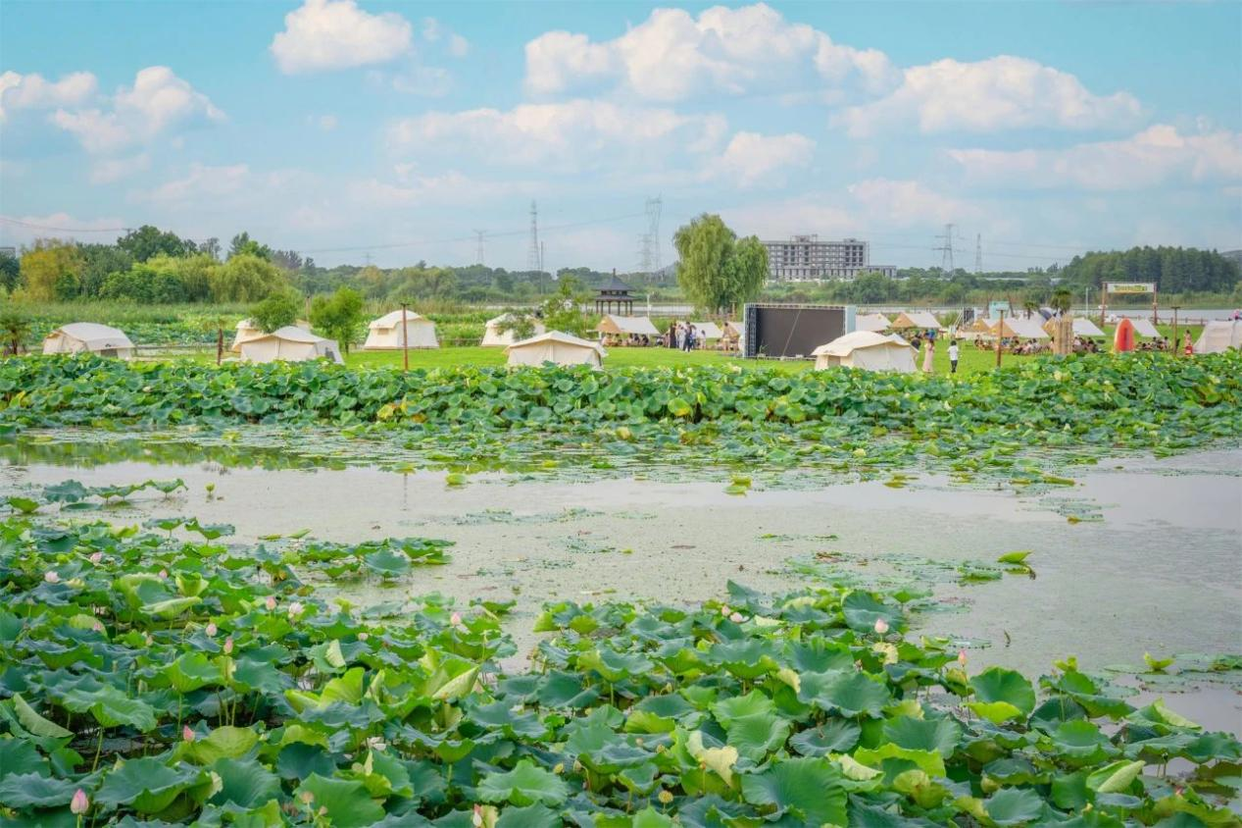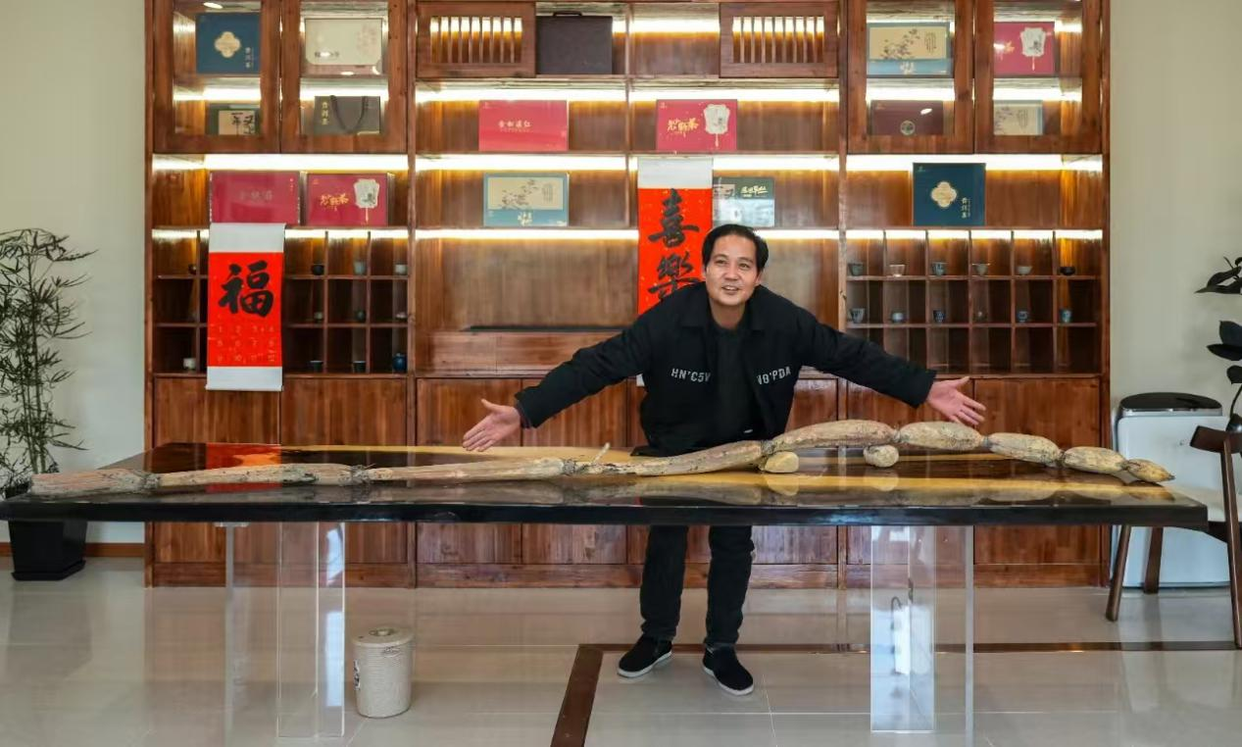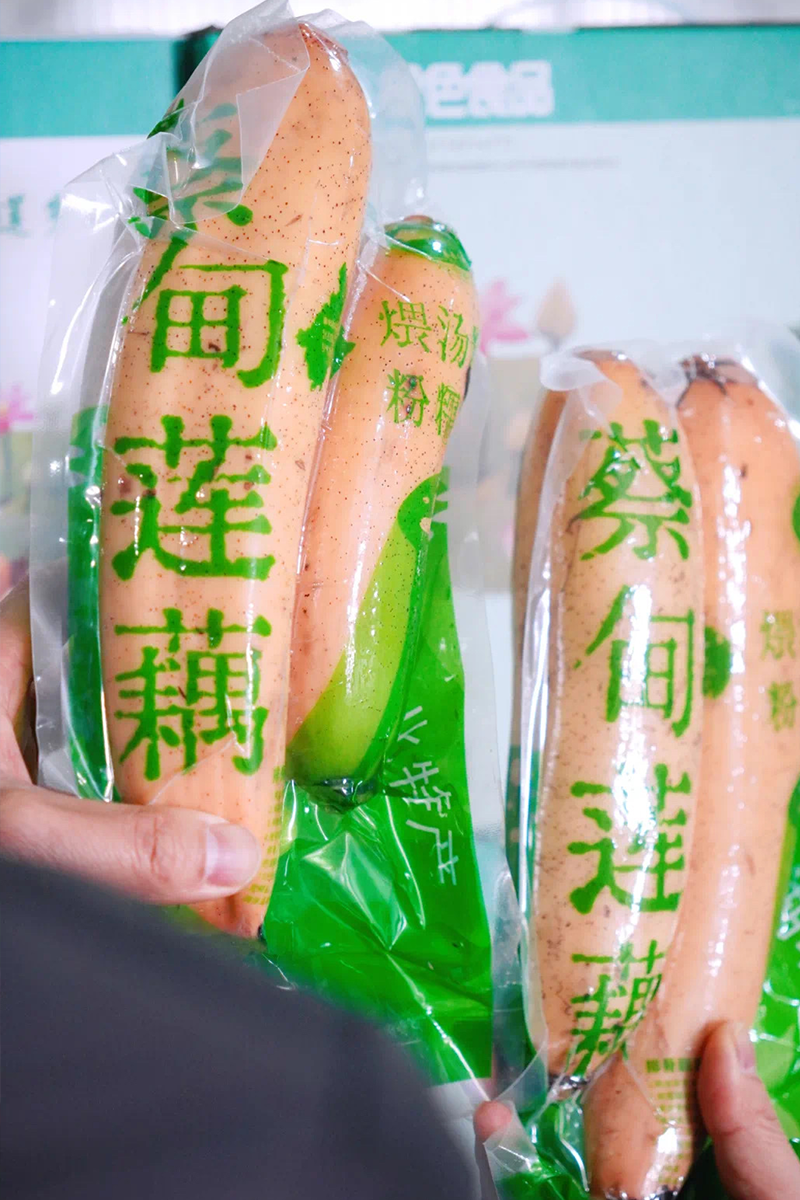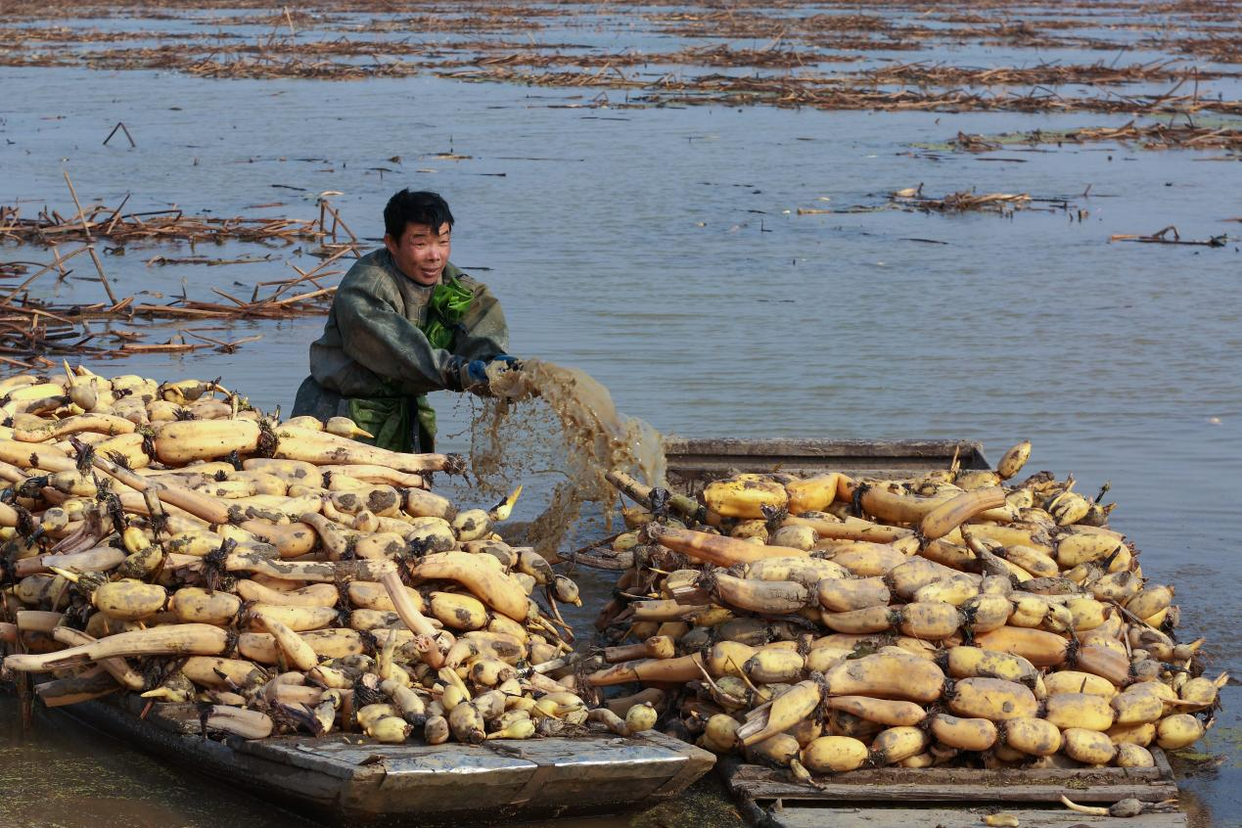Caidian,Wuhan: The "Hometown of Chinese Lotus Roots" Blossoms on the Global Stage
During the 2025 Chinese New Year film season, Nezha 2 dominated the box office, surpassing 10 billion yuan in earnings. The film's mesmerizing portrayal of a body formed from lotus roots transformed Hubei’s lotus roots into a widely recognized cultural symbol.
From an imperial tribute in the Song Dynasty to a benchmark of modern industry, and from muddy fields to dining tables worldwide, Caidian's lotus roots have flourished for millennia and are now embracing a new era of vitality.

Lotus Fields Spread Across Various Areas of Caidian District
Photo by the Caidian District Bureau of Culture and Tourism
Nestled in the triangular confluence of the Han and Yangtze Rivers, Caidian District in Wuhan benefits from centuries of alluvial deposits, creating nutrient-rich, clay-like soil—an ideal "golden cradle" for lotus root cultivation.
Caidian's lotus roots are delicate, white, and tender—a gift from nature and a testament to successful ecological restoration. With a global outlook, the district has modernized its agricultural landscape, blending ancient lotus fields with advanced ecological management, fostering an optimal environment for cultivation.

Li Zhengwang, a Lotus Root Grower in Caidian District, showcases a 3.23-meter-long super“Lotus King”
Photo by the Publicity Department of the Caidian District Committee

Photo by Caidian District Bureau of Culture and Tourism
Technological advancements are transforming Caidian’s entire lotus root industry chain. On the cultivation side, newly developed varieties such as E Lian and Xiang Fen span early, mid, and late maturation periods, catering to diverse market demands. On the processing side, more than 50 deep-processed products—including lotus root starch noodles, ready-to-eat lotus root soup, and lotus root rice puffs—have significantly increased the industry's added value.

Local Lotus Farmers Celebrate a Bountiful Harvest
Photo by the Publicity Department of the Caidian District Committee






